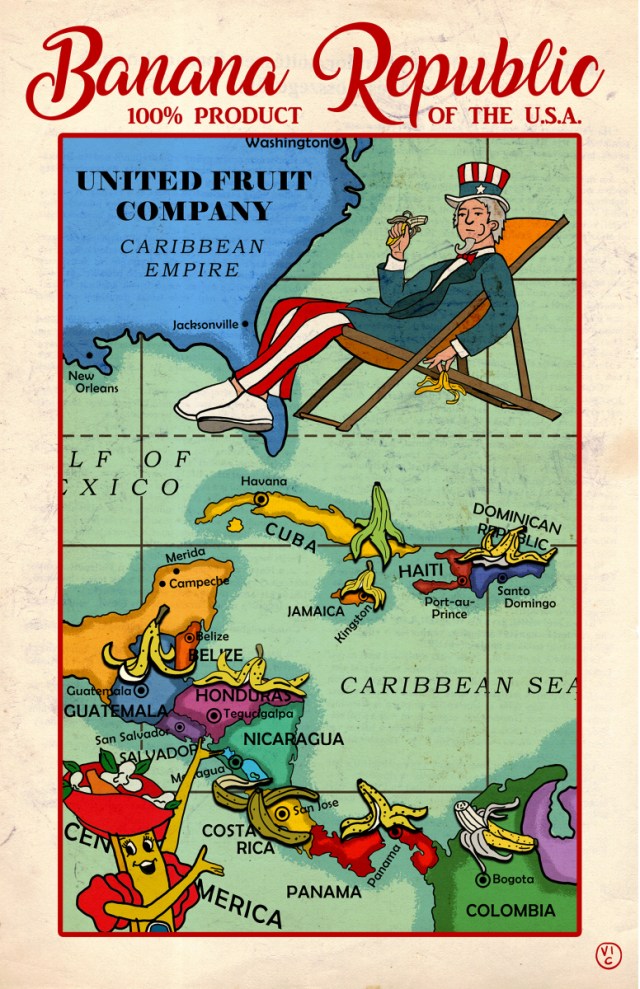
Candidates Linked to Major Corruption Scandals Win Election Primaries—in a country that has suffered since 2009 U.S.-backed coup
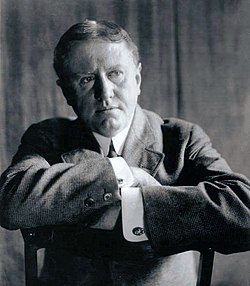
In the 19th century, American writer William Sydney Porter (better known as O. Henry) coined the term banana republic to describe the fictional Republic of Anchuria in the book Cabbages and Kings (1904), a collection of short stories inspired by his experiences in Honduras.
Honduras’s economy at the time was dominated by the United Fruit and Standard Fruit companies, which hired mercenaries to facilitate coups or solidify the power of leaders that favored their interests.[1]
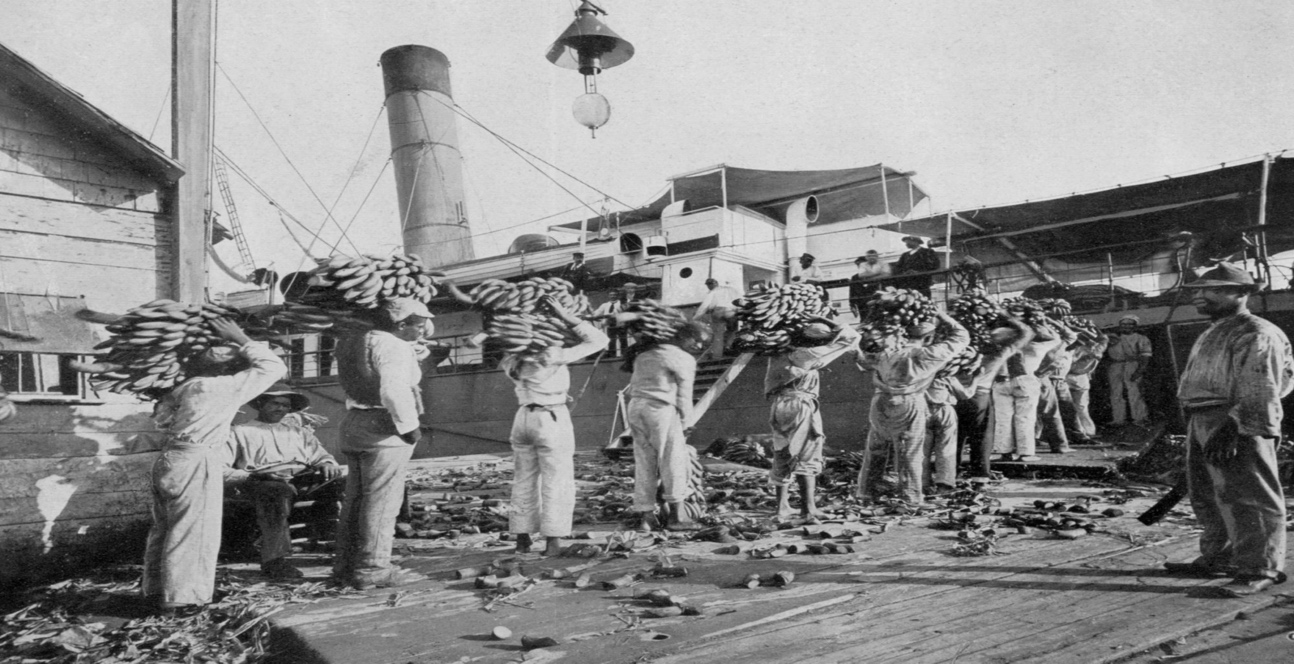
More than 100 years later, Honduras continues to be defined by a lack of good governance, corruption and foreign exploitation.
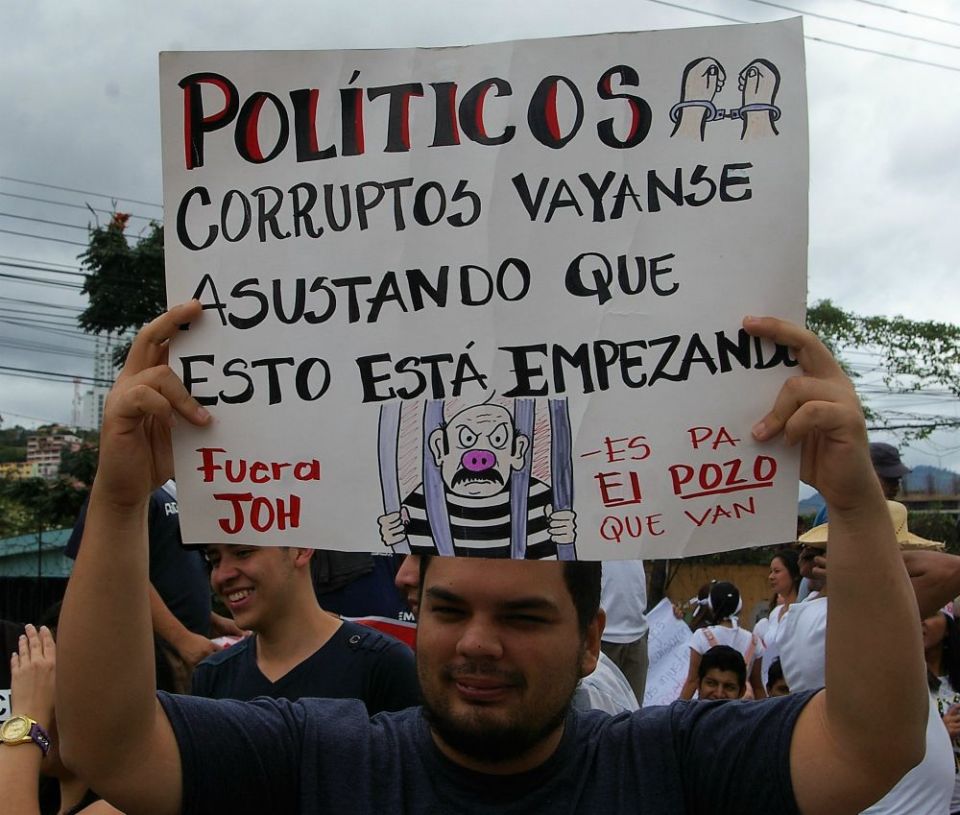
The country’s President, Juan Orlando Hernández—a key U.S. ally—has been accused by a prosecutor in the Federal District Court of Manhattan of protecting Honduras’s drug traffickers and helping them to flood the U.S. with cocaine.
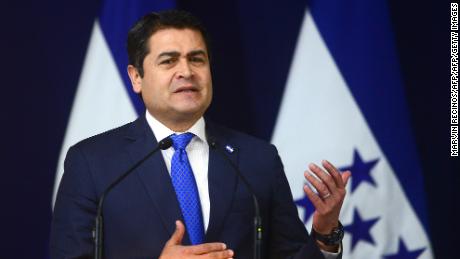
His brother Tony, a congressman from 2014 to 2018 and associate of Mexican drug kingpin Joaquin “El Chapo” Guzman, was found guilty in 2019 of importing nearly 200,000 kilograms of cocaine into the United States.
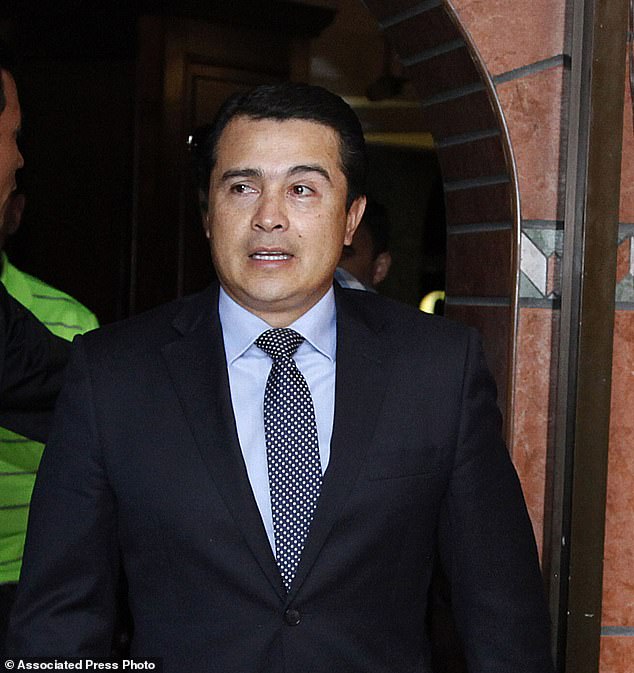
Many of the shipments were overseen by the former Honduran chief of National Police, Juan Carlos Bonilla Valadares (aka “El Tigre”), whom Tony Hernández said was “very violent,” and “trusted with special assignments, including murders.”
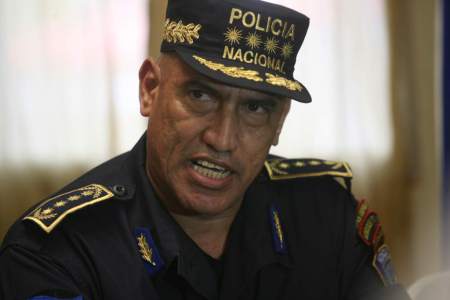
Hernández’s predecessor, Porfirio Lobo (2010-2014), was accused of misappropriating as much as $1 million in government funds, including to fraudulent business deals with a Cachiros-owned construction firm. [Cachiros is a major drug trafficking cartel in Honduras]
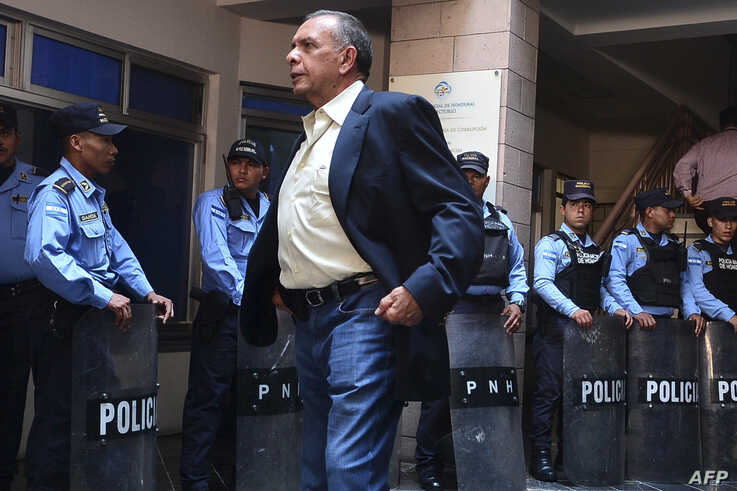
His son Fabio was given a 24-year sentence in a U.S. prison for drug trafficking, and wife Rosa Elena Bonilla was convicted by a Honduran court of diverting 18.3 million Honduran lempiras ($779,000) in public funds earmarked for social programs for her personal use.
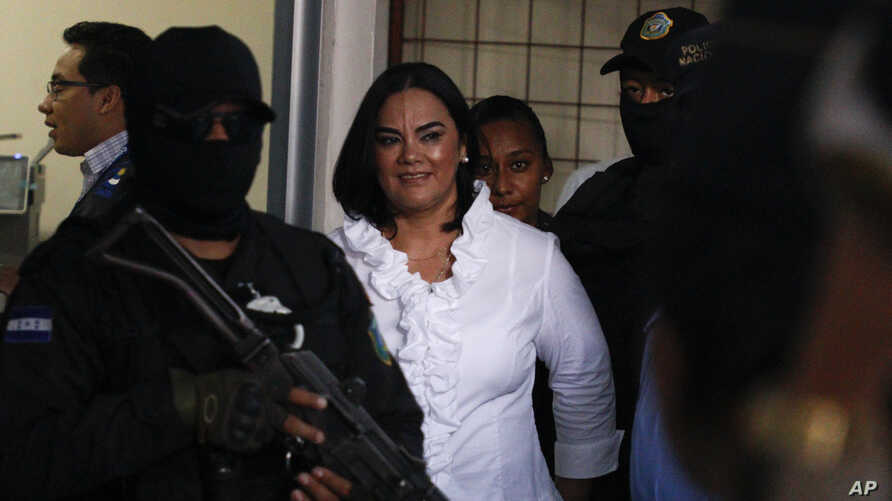
On Sunday March 14th, Hondurans went to the polls in primary voting to select the candidates who will compete in the November 28th general election.
Two of the major victors—Nasry “Tito” Asfura, who won 579,764 votes for the ruling National Party (PN) compared to 245,899 for his rival Mauricio Oliva Herrera—and Yani Rosenthal, the Liberal Party (PL) nominee, have serious corruption allegations hanging over them.
Rosenthal, a former congressman who hails from one of the richest families in Honduras, just completed a three-year prison sentence for money laundering for the Cachiros drug cartel.[2]
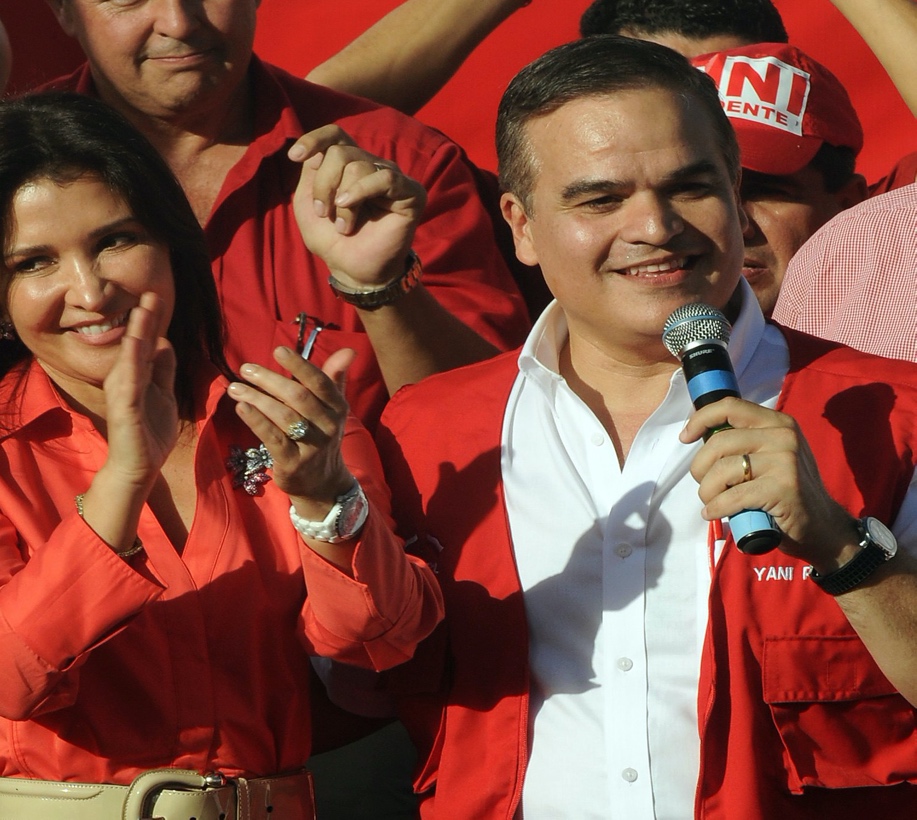
He was indicted under the Kingpin Act with his cousin Yankel, the former investment minister and soccer club owner, and since deceased father Jaime, a former congressman and Vice President who owned El Tiempo and other major newspapers.
Asfura, meanwhile, who is backed by Hernández, has been named in a government investigation into embezzlement of more than one million dollars in city funds.[3]
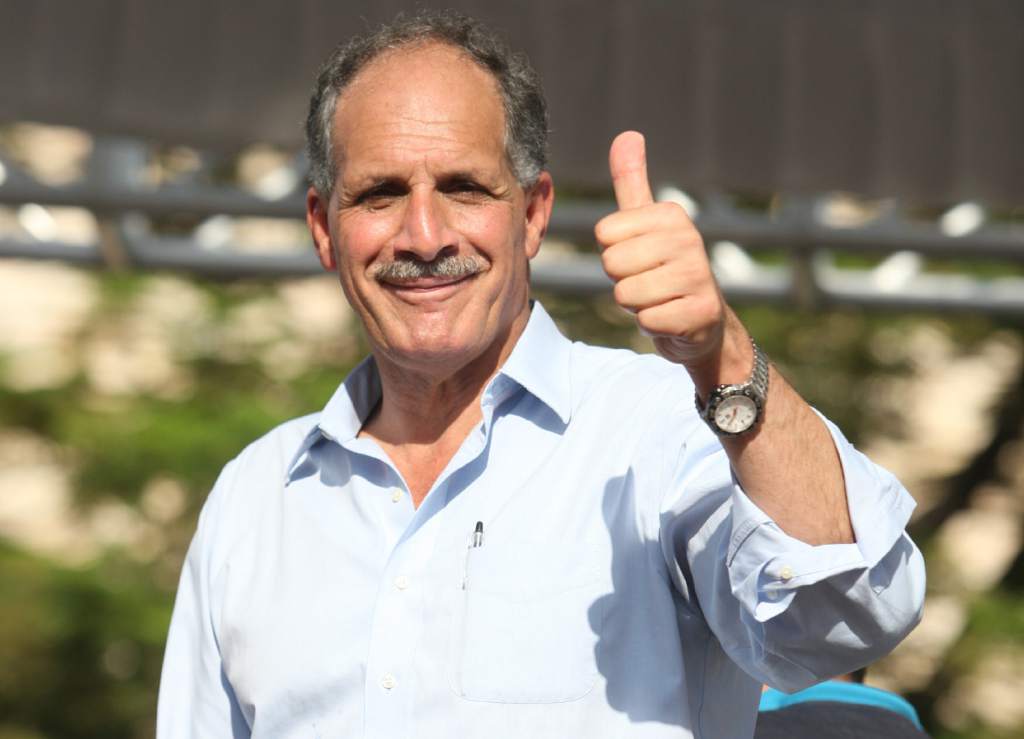
The charges stem from an investigation into a complex series of transactions that ended with tax funds shunted to personal accounts, according to court documents.
Asfura’s rival, Mauricio Oliva Herrera, the head of the national Congress since 2014 and a top Hernández confidante, is under investigation for receiving properties from the Cachiros drug cartel, and allegedly stole $300 million from the national health services.[4]
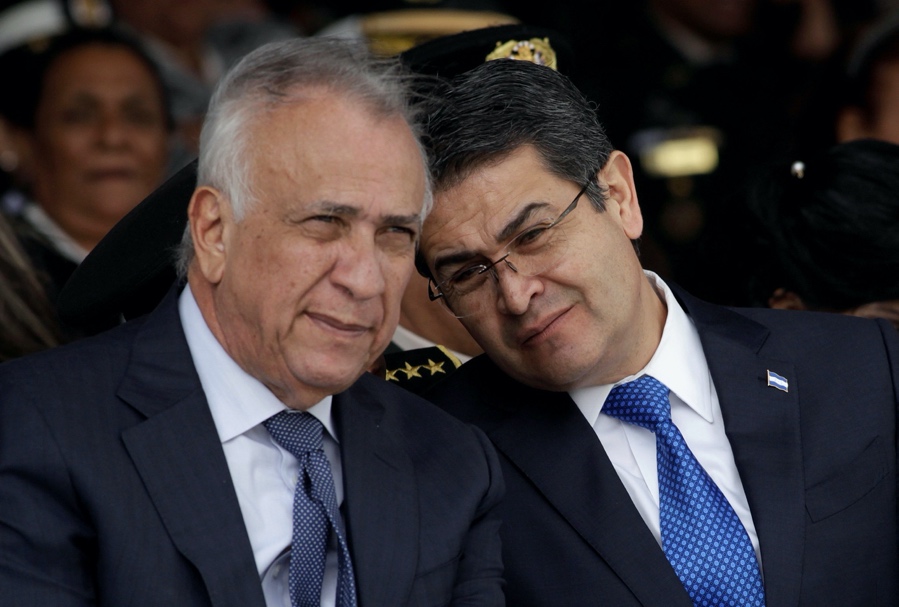
Honduran political analyst Tomás Andino Mencía wrote that the vote tally for both Asfura and Oliva was inflated in the primary so as to make the National Party seem invincible in the general election and to force the other parties to form a coalition if they are to have any hope of winning.
The potential spoiler in the 2021 race is Xiomora Castro, head of the left-leaning Liberty and Refoundation Party (LIBRE), whose platform advocates for closer ties with Venezuela and an alternative to neoliberal austerity measures that have devastated Honduras.
For her to have a chance, according to Mencia, there would have to be “an alliance of all groups opposed to the narco state.”
Castro is the wife of José Manuel Zelaya, Honduras’s president from 2006 to 2009, who was overthrown in a U.S.-backed coup.
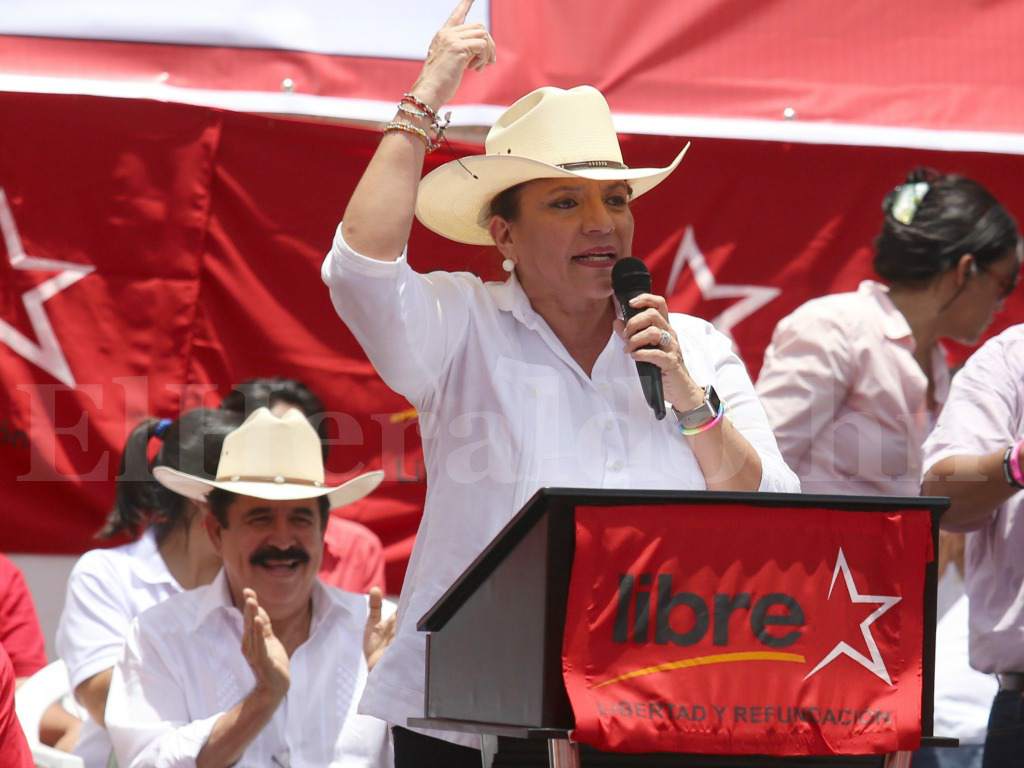
After emerging as a frontrunner in the 2013 election, 18 LIBRE candidates and immediate family members were murdered and 15 were subjected to armed attacks—a pattern that could be repeated if the party shows signs of success again.
“People Poor, Politicians Rich”
Nestor Valle, a 47-year-old worker in Tegucigalpa, embodied the views of many Hondurans when he told Reuters that whoever becomes president, “we will continue in the same way: us poor and them—the politicians—rich.”
Honduras has the highest inequality levels of any country in Latin America, the continent with the highest inequality levels in the world.
The poverty rate in Honduras is approaching 70% and unemployment levels hover around 6%.
Violent crime in the country is also rampant, with one of the highest murder rates in the world., and a near complete disintegration of the criminal justice system.[5]
The desperate conditions have resulted in a large share of refugees fleeing to the U.S. border, approximately 30% of the total.
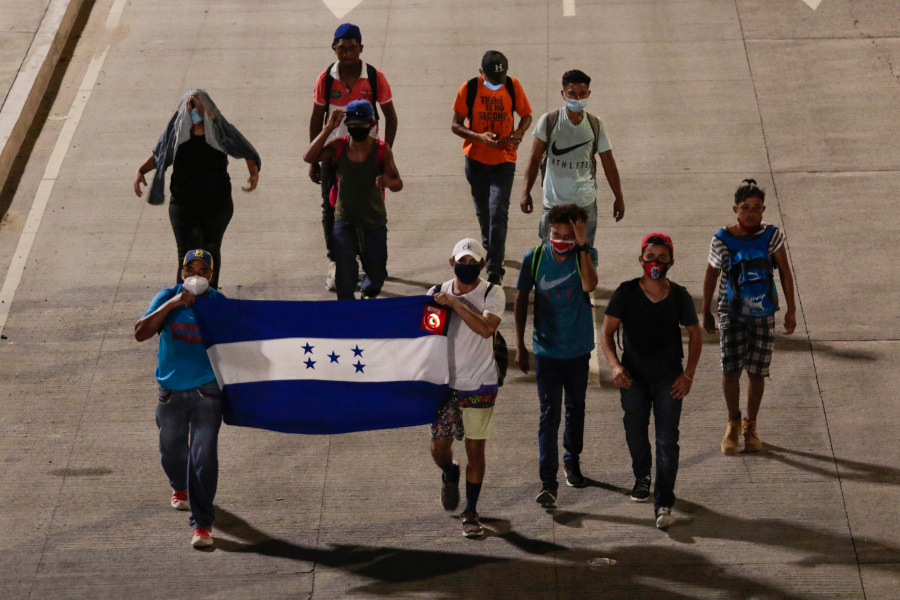
In March, President Joe Biden issued a statement encouraging these migrants to “slow down”—stating that his administration planned on easing restrictions to their entry into the U.S. but that the process would “not happen overnight.”
Biden characteristically would not acknowledge U.S. responsibility for helping to fuel the refugee crisis—by supporting corrupt politicians and violent security forces and backing the 2009 coup, which precipitated the country’s downward spiral.[6]
Overthrowing Honduras’s “Best President”:
The target of the 2009 coup, José Manuel Zelaya, had raised the minimum wage, increased teacher pay, opened the door to restoring the land rights of small farmers, and joined the Hugo Chavez-led Bolivarian Alliance for the Americas (ALBA), which aimed to integrate Latin American economies independent of the U.S.[7]
Miguel Angel, a political activist in his 20s who fled Honduras after the coup, stated that “Zelaya was the best president Honduras had ever had”; one who “followed through on his campaign promises.”
The latter proved to be his undoing as the wealthy “didn’t like the fact that a man of power gave a plate of food to the poor.”
Just a month before his overthrow, Zelaya had responded to an investigation that charged a Vancouver-based company (Goldcorp) with contaminating Honduras’s Siria Valley by introducing a law that would have required community approval before new mining concessions were granted.
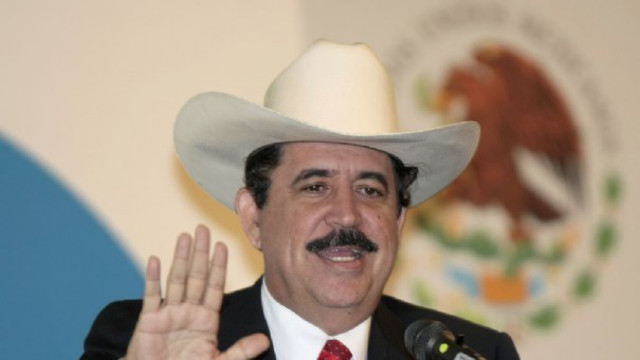
His government also nationalized the telecommunications industry and was trying to break a dependent relationship whereby the region was exporting to U.S. refineries, only to buy back gasoline at monopolistic prices.[8]
Venezuelan leader Hugo Chávez characterized the coup against Zelaya as part of a “retrograde and anti-historic counter-offensive by the U.S. empire,” whose aim was to “roll back the union, sovereignty and democracy of our continent.”[9]
The coup was carried out at 4 a.m. on June 28th, when a battalion of 150 masked Honduran soldiers under orders from U.S. trained General Romeo Vásquez Velásquez initiated a shootout with the Presidential Honor Guard and dragged President Zelaya in his pajamas onto a plane at gunpoint, flying him to San José, Costa Rica.
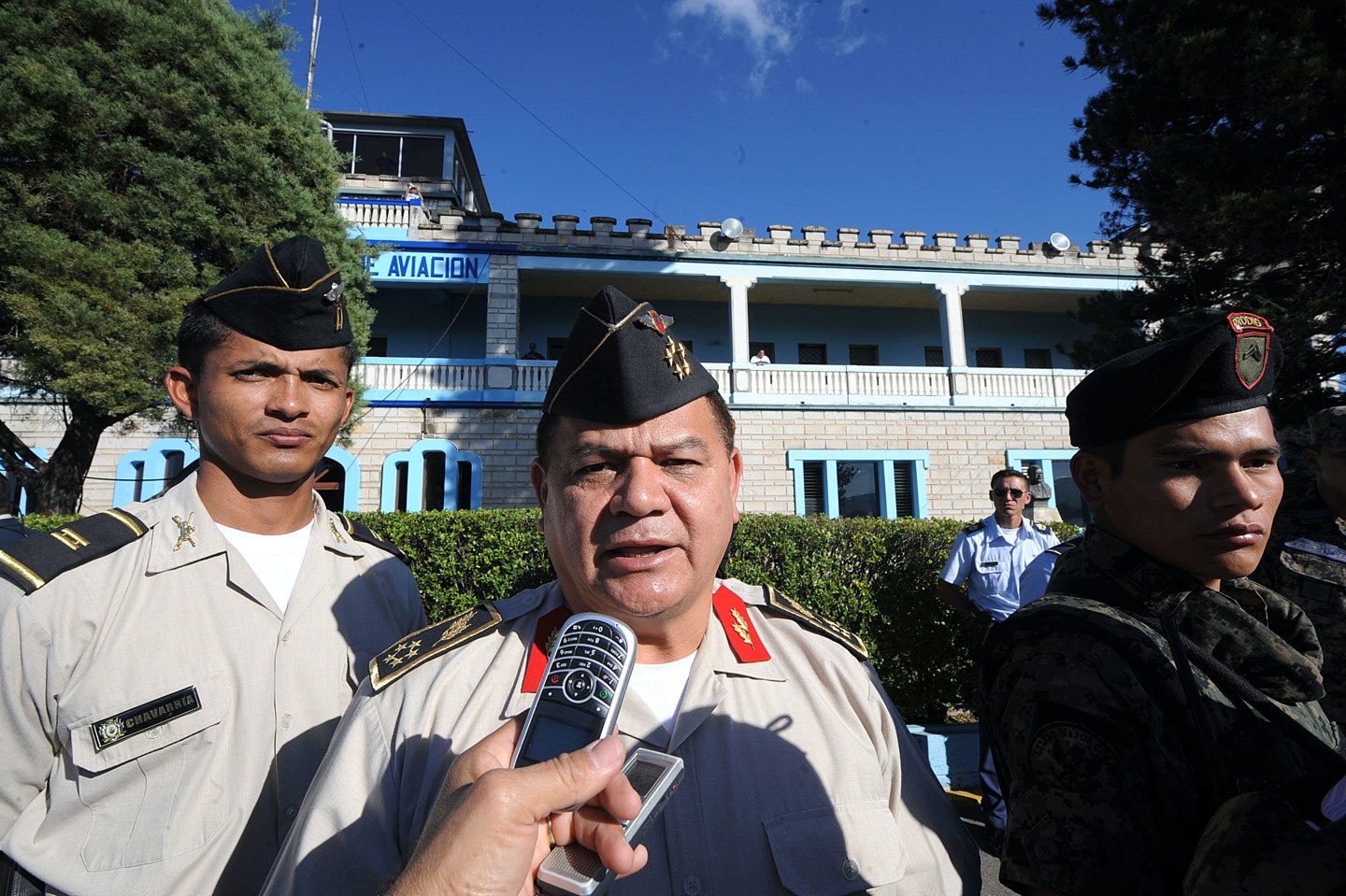
After the coup, death lists began to circulate, and 136 people were killed by state security forces in the repression of pro-Zelaya protests.
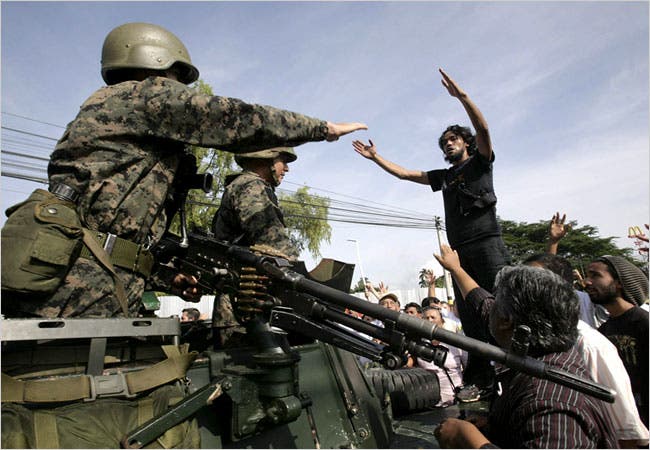
The pretext for the coup was that Zelaya had violated Honduras’s constitution when he attempted to organize a nonbinding referendum that would have allowed an extension of presidential term limits. However, it was not clear who had the authority to enforce the new edict and, under its terms, Zelaya could only have run for the presidency again in four years.
One of Zelaya’s aides told the press that Zelaya’s plane had stopped on its way out of the country at the Palmerola airbase, home to 600 U.S. troops—which indicates a direct U.S. involvement in the coup.
A top U.S. military official had met with the coup plotters a day before, and a “retired” U.S. general provided direct assistance to them.[10]
The day after the coup, President Barack Obama told the media that the coup was not legal, and that it “would be a terrible precedent if we start moving backwards into the era in which we are seeing military coups as a means of political transition.”
Obama, however, did nothing to try to help restore a constitutional government and recognized the victory of Porfirio Lobo in November 2009 elections that were marred by violent attacks on opposition candidates.[11]
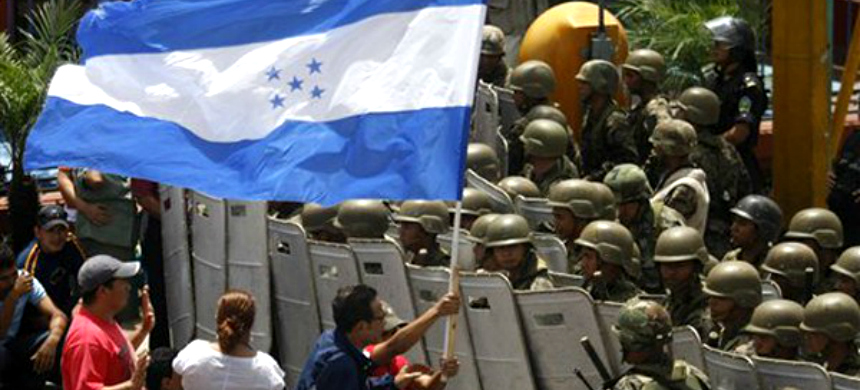
Aftermath of the Coup
In the aftermath of Zelaya’s ouster, the Obama administration further funneled over $43 million to the coup government, mostly allocated through the Department of Defense, and between 2009 and 2013 gave the coup government over $350 million in aid.
Hillary Clinton ensured that the events in the country were not labeled a coup in Washington so that aid would not be shut off.
According to WikiLeaks documents, Clinton and her team worked behind the scenes to fend off efforts by neighboring democracies through the Organization of American States (OAS) to restore the elected president [Zelaya] to power.
“The OAS meeting today turned into a nonevent — just as we hoped,” wrote one top State Department official, celebrating a strategy of slow-walking a restoration.
Clinton’s memoir originally admitted, “We strategized on a plan to restore order in Honduras … which would render the question of Zelaya moot.” This section was removed from later printings of the book.
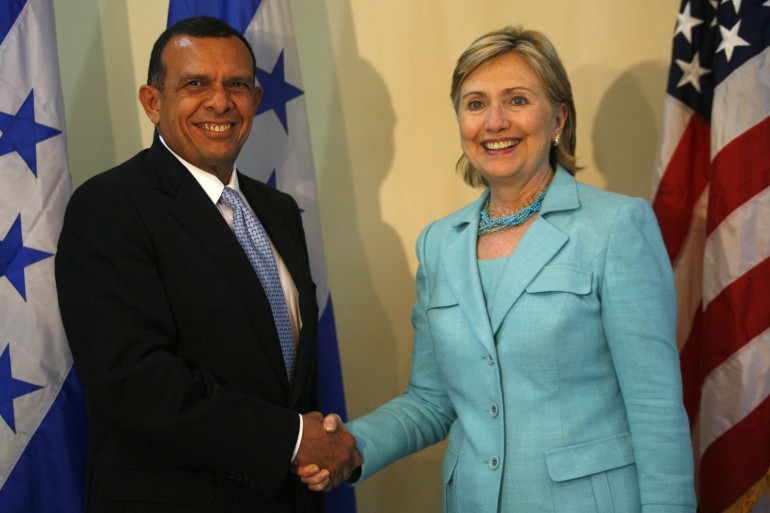
From 2010 to 2012, the United States increased military and police aid to Honduras by nearly 50 percent, and raised funding under the Central American Regional Security Initiative (CARSI) by 33 percent.
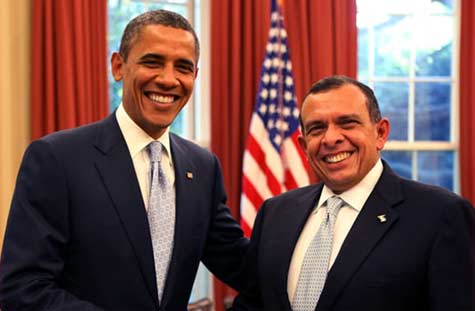
The Associated Press reported that in 2011, the Pentagon spent a record $67.4 million on military contracts in Honduras, as well as $89 million on the 600 troops stationed at Soto Cano.[12]
Riot police were trained by U.S. SWAT teams, and Tigres paramilitary units—run for a period by death squad operator Juan Carlos Bonilla Valladares—were trained by Green Berets.
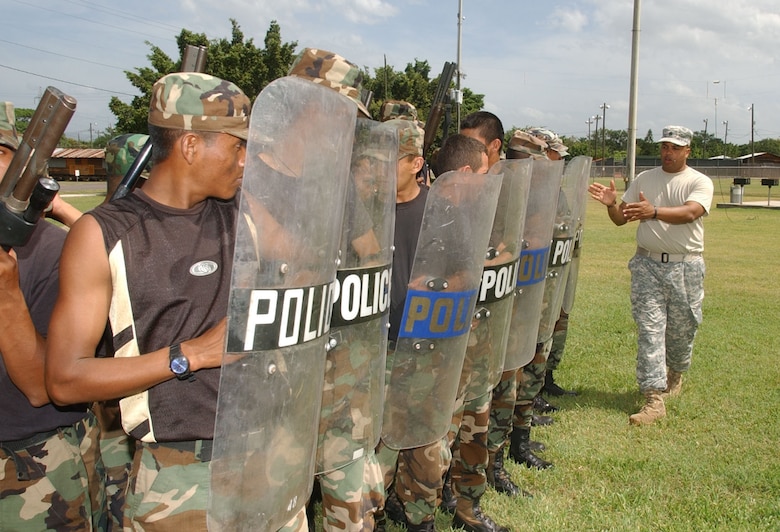
The Federal Bureau of Investigation (FBI) trained the Honduran military police, which in June 2019 invaded the Autonomous University of Honduras, attacking students protesting the privatization of their school.
Supplying Repression
Since the coup, much of the funding for security forces has been channeled through humanitarian or development assistance and packaged as part of the war against drugs or gangs. In 2016 alone, $222 million was budgeted for narcotics control programs, which were undermined by rampant corruption.
Weapons have also been transferred through arms sales.
Honduran police frequently attack nonviolent protests with CS tear gas manufactured by NonLethal Technologies in Homer City, Pennsylvania.
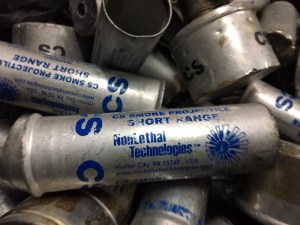
Further, Colt Manufacturing, based in Hartford, Connecticut, exported machine guns to Honduras that were used by military police to fire on protesters against electoral fraud in 2017.
Colt shipped 1,714 machine guns to Honduras in 2015, 350 in 2016, and 1,000 in 2017, at a value of $3,558,686.[13]

The U.S. military had a particularly close relationship with Hernández’s Security Minister Julián Pacheco Tinoco, a 1979 graduate of the U.S. Army School of the Americas whom a Mexican drug trafficker, José Santos Peña, claimed to have met with to discuss plans to move cocaine from Colombia through Honduras to the U.S.
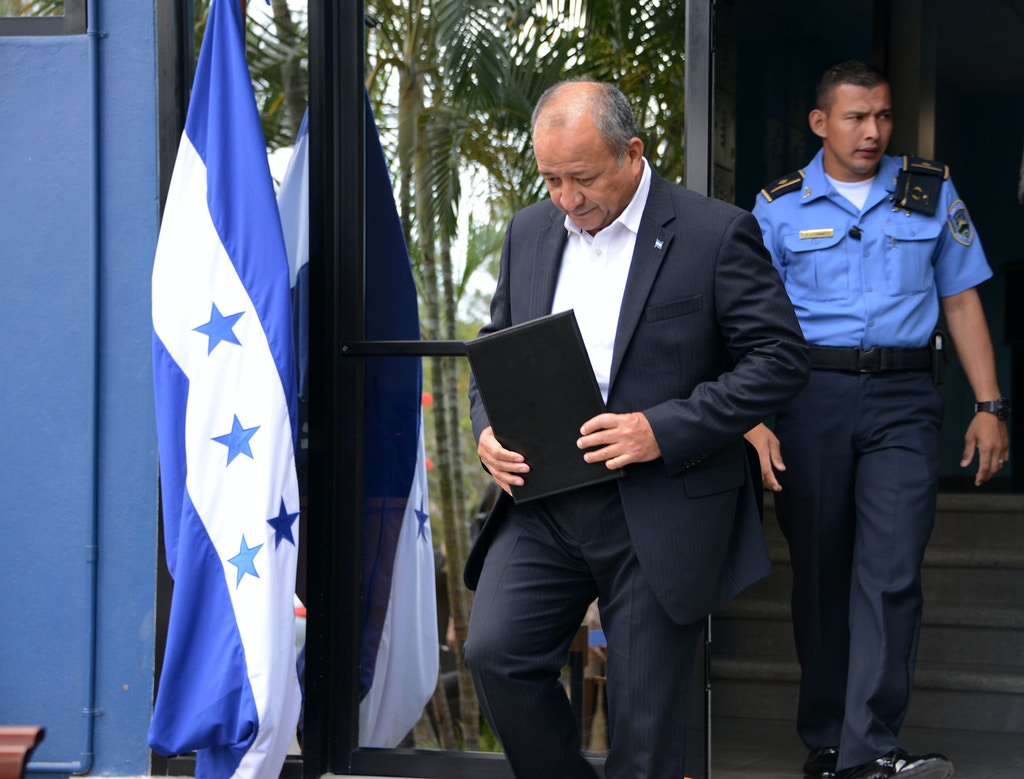
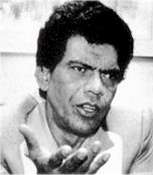
In the 1980s, the U.S. had similarly allied with corrupt military officers, security officials and drug traffickers who helped establish Honduras as a base for counter-revolutionary operations against the socialist Sandinista government in Nicaragua.[14]
In February 2021, Senators Jeff Merkley (D-OR), Patrick Leahy (D-VT) and Dick Durbin (D-Ill) sponsored a bill imposing sanctions on Juan Orlando Hernández for corruption and human rights abuses, and advocating the suspension of U.S. security assistance to Honduras and export licenses for coveted defense articles and munitions items sold to the Honduran police and military.
Top Biden administration officials failed to support the bill—which lacks the numbers to pass—and have refused to condemn the human rights violations carried out by U.S.-subsidized security forces in Honduras.
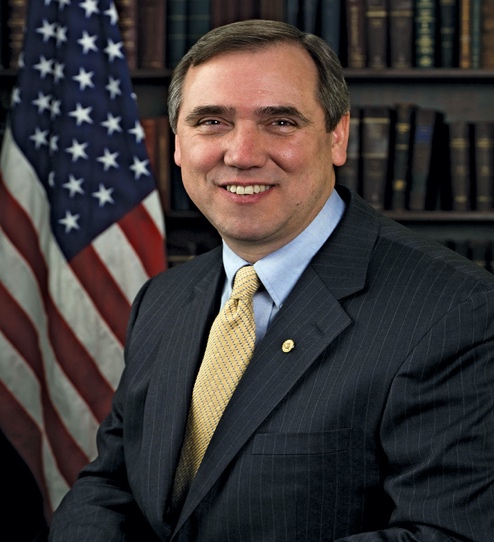
Jeff Merkley [Source: britannica.com] 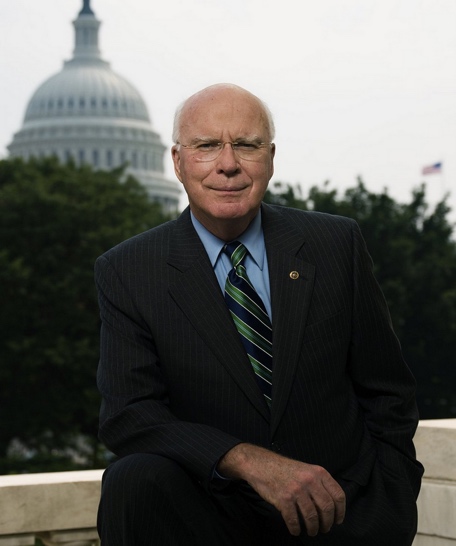
Patrick Leahy [Source: wikipedia.org] 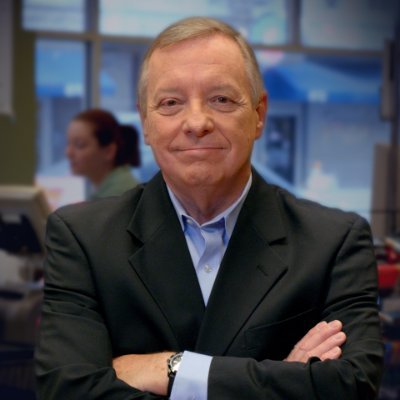
Dick Durbin [Source: twitter.com]
Killing of Berta Cáceres
The poor human rights climate following the coup was exemplified by the March 2016 assassination of Berta Cáceres, coordinator of the Council of Popular and Indigenous Organizations of Honduras.
Awarded the prestigious Goldman environmental prize in 2015, Cáceres had spearheaded opposition to a dam-building project sponsored by a powerful Honduran energy company backed by the United States Agency for International Development (USAID).
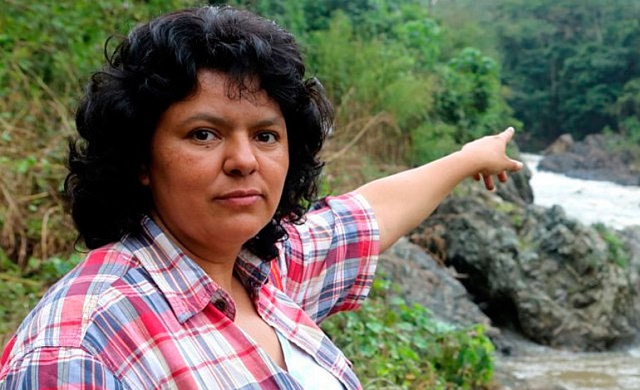
An investigation by corruption watchdog Global Witness described a huge increase in environmentally destructive mega-projects by political, business and military elites since the 2009 coup.
The post-coup government failed to investigate dozens of death threats that Cáceres reported before she was killed.[15]
The Guardian reported that the Cáceres hit was “an extrajudicial killing planned by military intelligence specialists linked to the country’s U.S.-trained special forces,” who had been empowered in the coup.
Open Veins
Under the Alliance for Prosperity, the Obama administration channeled at least $1.5 billion to spur mega-development projects—which fueled the kind of environmental destruction that Càceras fought against—and to advance the privatization of social services in Honduras, which reinforced a huge divide between rich and poor.
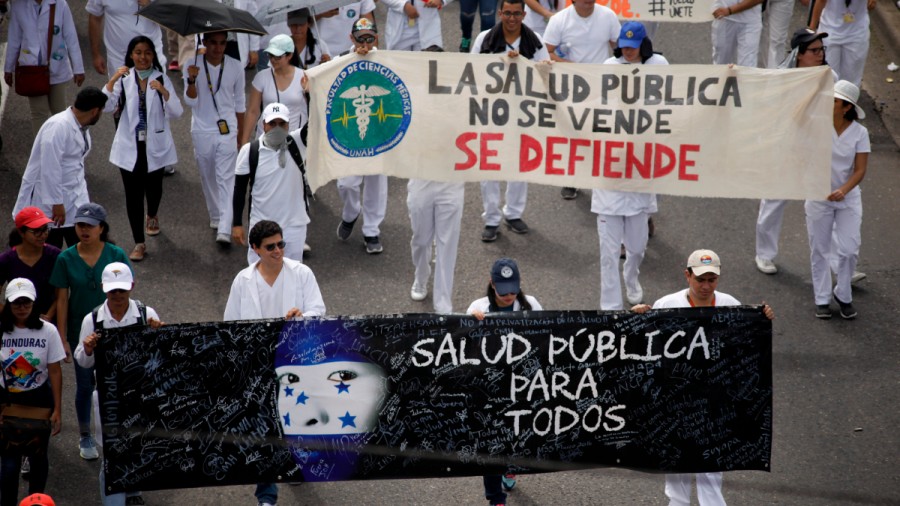
President Hernández’ criminality was epitomized not only by his narco-trafficking, but by his orchestration of a scam in which millions were siphoned from the Honduran Institute for Social Services into private businesses, devastating the health care sector and forcing Hondurans to seek medical care from private hospitals.
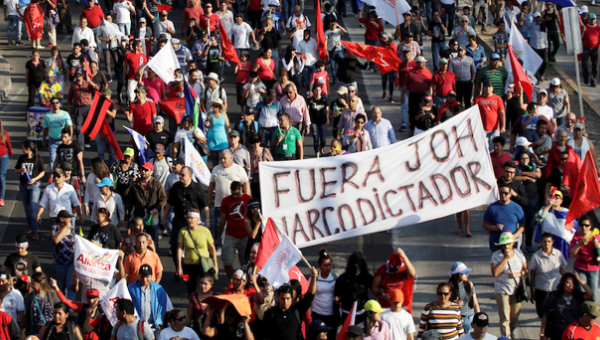
Honduran teachers meanwhile went on strike after $200 million from their pension funds was stolen by the post-coup government, which re-privatized the state-owned telecommunications and national energy companies, obliterating scores of good union jobs.[16]
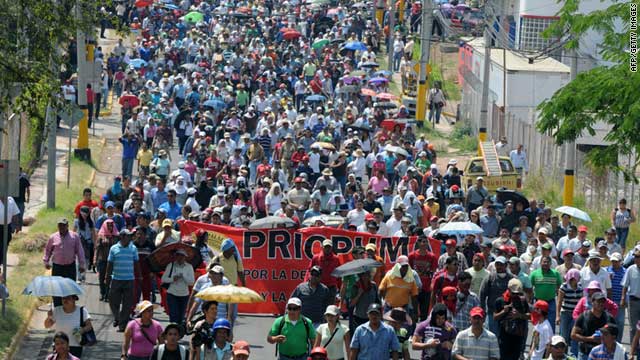
The Honduran economy boasted large export-processing zones, or maquiladoras, in which transnational corporations produced garments and electronic parts, while mining corporations, especially from Canada, increasingly moved in on mineral resources.[17]
In 2015, the State Department reported that the stock of U.S. foreign direct investment in Honduras was $2.42 billion. The country received high marks for having made “notable improvements in market openness as measured by trade and investment freedom.”
However, a program to develop “model cities” funded by U.S. investors that would be exempt from existing labor, environmental and other laws, was effectively abandoned due to a lack of government transparency and corruption.[18]
The program was developed by Nobel Prize winning economist Paul Romer and supported by Grover Norquist, the inventor of the Tea Party, and former President Ronald Reagan’s son Michael, as part of an effort to turn Honduras into the “Hong Kong” of Latin America.
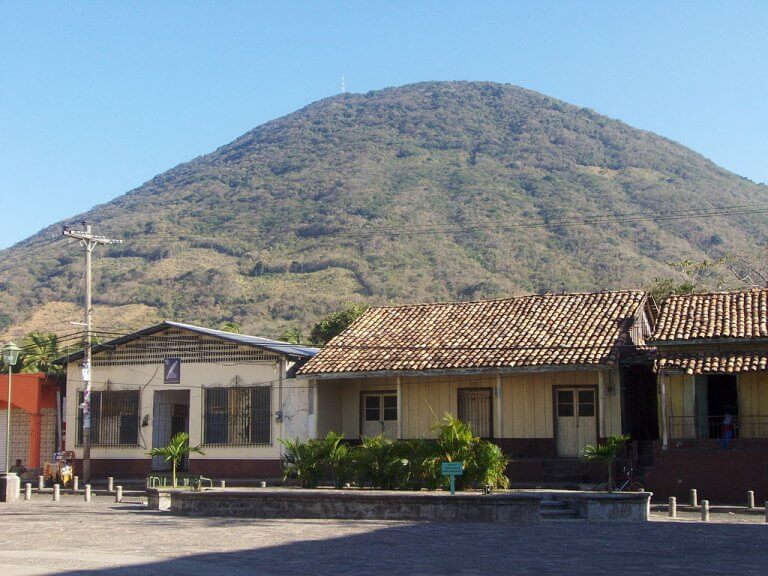
The Center for Economic and Policy Research in 2017 concluded that GDP dropped by two percent and unemployment rose from 3 to 7.4 percent in the years after the coup, while the women’s underemployment rate more than doubled.[19]
The social and environmental cost of the government’s policies was borne most by indigenous groups like the Moskitia, Miskitu and Garifuna, whose waterways and land were threatened by a 2013 agreement granting the BG Oil Group, subsequently bought over by Shell, oil and gas exploration rights off the Honduran coast.
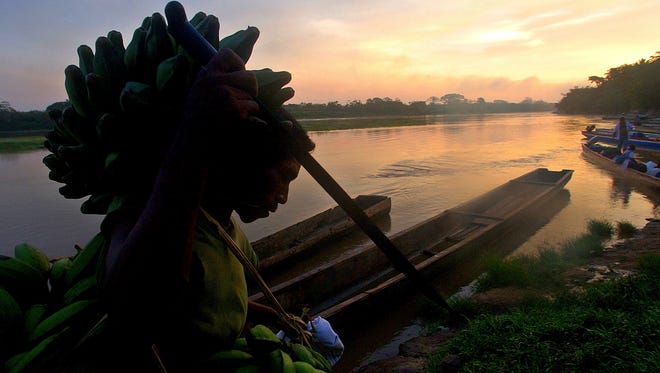
In September 2014, Miskitu communities denounced a slew of abuses and human rights violations by security forces, ranging from illegal raids and death threats to torture and threats of sexual violence, along with a botched Drug Enforcement Administration (DEA) raid that left four indigenous civilians dead.
A Southern Command forward operating base is located nearby in Mocoron, a site previously used by the U.S. to support the CIA-trained Contra forces in their attempts to overthrow the Sandinista government in Nicaragua in the 1980s.[20]
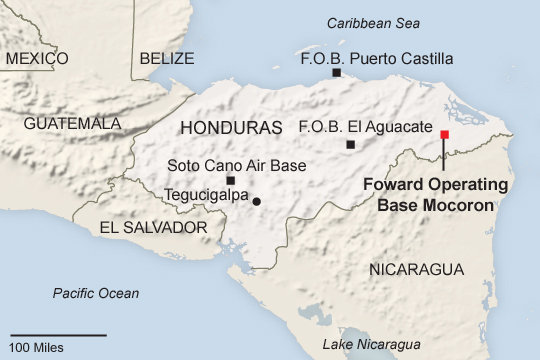
Biden Plan
The Biden administration is now advancing a $4 billion aid program for Central America that is similar to the Alliance for Prosperity in its aim to harness “private sector investment” and promote “economic stability and job creation” by “reducing the barriers to private sector investment.”
Honduras and other Central American nations will have to “end [any] restrictions on foreign corporations dominating their industries and markets” and “remove any tariffs or economic protectionist measures.”
These are exactly the kinds of policies that “have devastated local economies in Latin America fueling poverty, unemployment and mass migration,” journalist Ben Norton notes.
The Biden Plan directs the U.S. Trade Representative and Commerce Department to evaluate whether Central American nations are abiding by their commitments under the Central America Free Trade Agreement (CAFTA), including the requirement that “labor practices do not disadvantage competition”—thus forcing Honduras’s government to cut the few protections, wages and benefits they provide to workers.
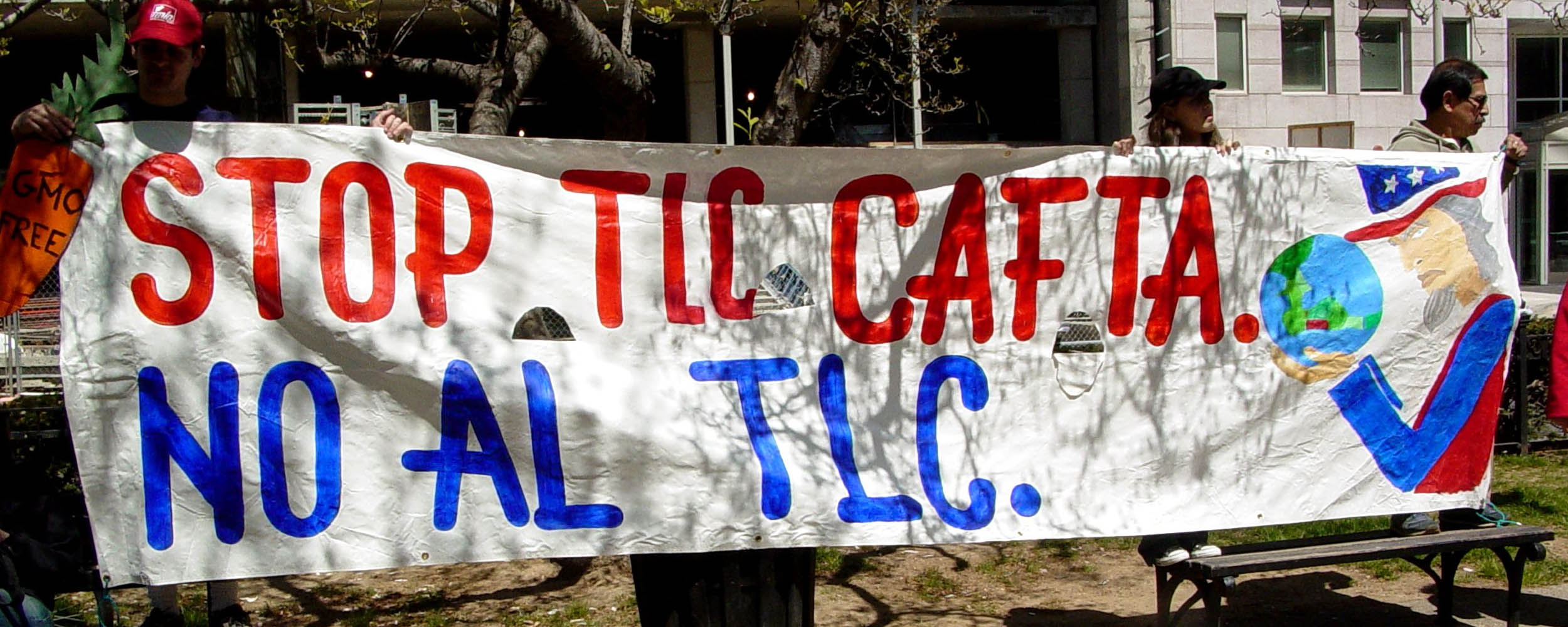
To provide a progressive veneer, the U.S. has channeled millions of aid dollars through the National Endowment for Democracy (NED), which was established in the 1980s to take over functions previously performed by the CIA.
In 2018, the NED budget for Honduras was $735,124. Total U.S. foreign aid in that year was $126.768 million.
Dana Frank, author of The Long Honduran Night: Resistance, Terror and the United States in the Aftermath of the Coup (Chicago: Haymarket Books, 2018), pointed out in an interview that much U.S. aid money has gone to civil society groups that are allied with the U.S. embassy and its interests, in addition to aid to military and police.[21]
U.S. Marines have recently worked with the Honduran Armed Forces in the Aguán Valley and elsewhere, training them in psychological warfare operations and cybersecurity as part of miilitary-run agricultural development projects designed, in part, to undermine, infiltrate, and co-opt the campesino movement.[22]
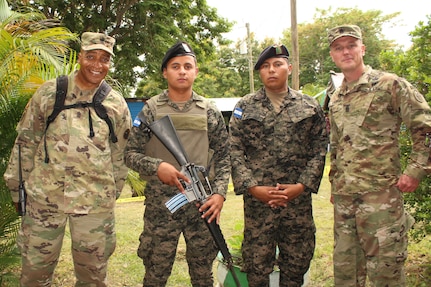
The latter movement pushed for land reform and other progressive measures and has been continuously repressed by the Honduran military and allied militias controlled by large ranchers and mining corporations.[23]
Uncle Sam and the Elections
In the 2021 election field, Asfura is the status quo candidate who will continue Hernández’s efforts to make Honduras more friendly to foreign investment, work to violently repress grass-roots social movements, and uphold U.S. imperial interests in Honduras.
The State Department’s favored candidate is Luis Zelaya [no relation to Manuel], former rector of the Central American Technological University (UNITEC), who finished a distant second to Yani Rosenthal in the liberal party primary.
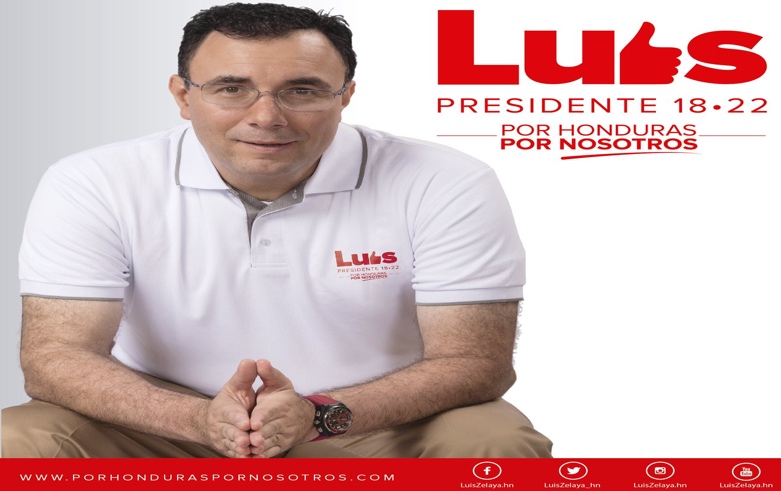
Claiming to be a “defender of private initiative with social responsibility and a human face,” Zelaya has vowed to form an alliance with television host Salvador Nasralla, who emerged as the victor in the 2017 election, only to have the result nullified after a mysterious blackout and computer breakdown led to a recount that Hernández narrowly won.
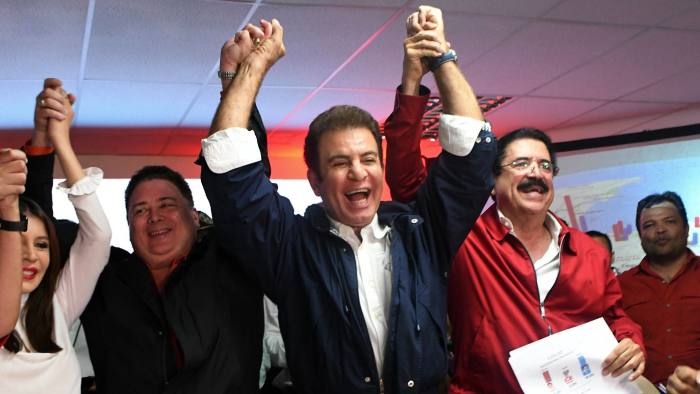
According to Dana Frank, pervasive corruption has created a problem for the United States in that “there are no candidates it wants to endorse that have won the primaries.”[24]
At its root, U.S. foreign policy is driven by transnational corporations and the desire to extract wealth from the Honduran people and its environment, along with a desire to retain military bases in Honduras and regional military dominance.[25]
While Honduras is often characterized as a “failed state,” Frank said that it is not a failed state for those who seek “the expansion of energy sources to the United States, for the garment industry, for the drug traffickers, or for Honduras’ elite.”[26]
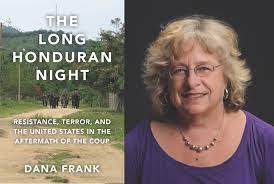
“The Democratic Party’s current concern about the situation in Honduras is largely because they are worried that Republicans could use a purported ‘crisis’ in immigration to their political advantage in the 2022 elections.”[27]
By implication, they may be more prone to interfere in Honduras’s upcoming election.
Prospects of Electoral Fraud
The prospects of electoral fraud come November are very high, since the rules that governed Honduras’s rigged 2017 election remain in place.[28]
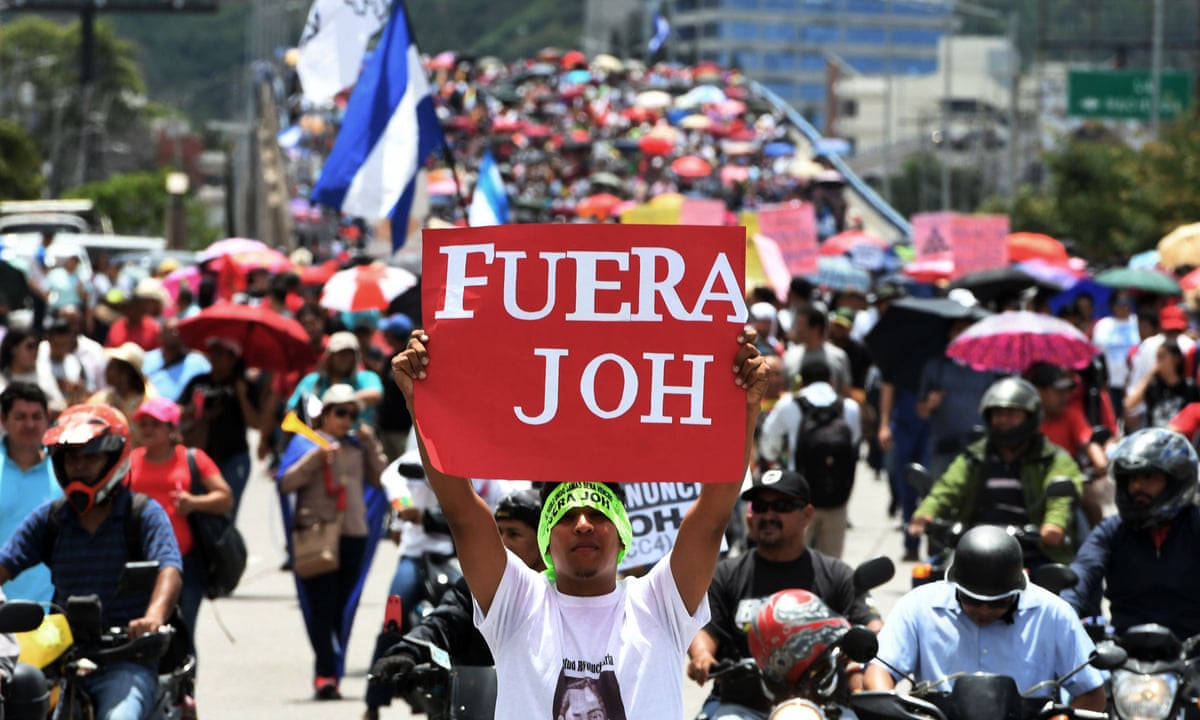
Hernández has significantly refused to renew the mandate of the OAS-sponsored Mission to Support Corruption and Impunity in Honduras (MACCIH), which all but assures that illicit money will find its way into the coffers of the already-corrupted candidates.
According to Frank, Hernández may stay in power by using the pretext of the COVID-19 pandemic to delay the election or, “if Asfura’s corruption leads to disqualification, by stepping into Asfura’s place as the National Party candidate.”
If this happens, the pattern from the 2017 election—when security forces killed thirty people protesting electoral fraud and injured and detained hundreds more—would likely be repeated.[29]
A Cursed Nation?
If O. Henry were still alive, he would have a lot more stories to write.
Thousands of Hondurans are currently homeless because of two devastating hurricanes last November which destroyed bridges, roads, schools, farms, homes and health clinics, and have been forced to crowd into shelters where they are more susceptible to COVID-19.
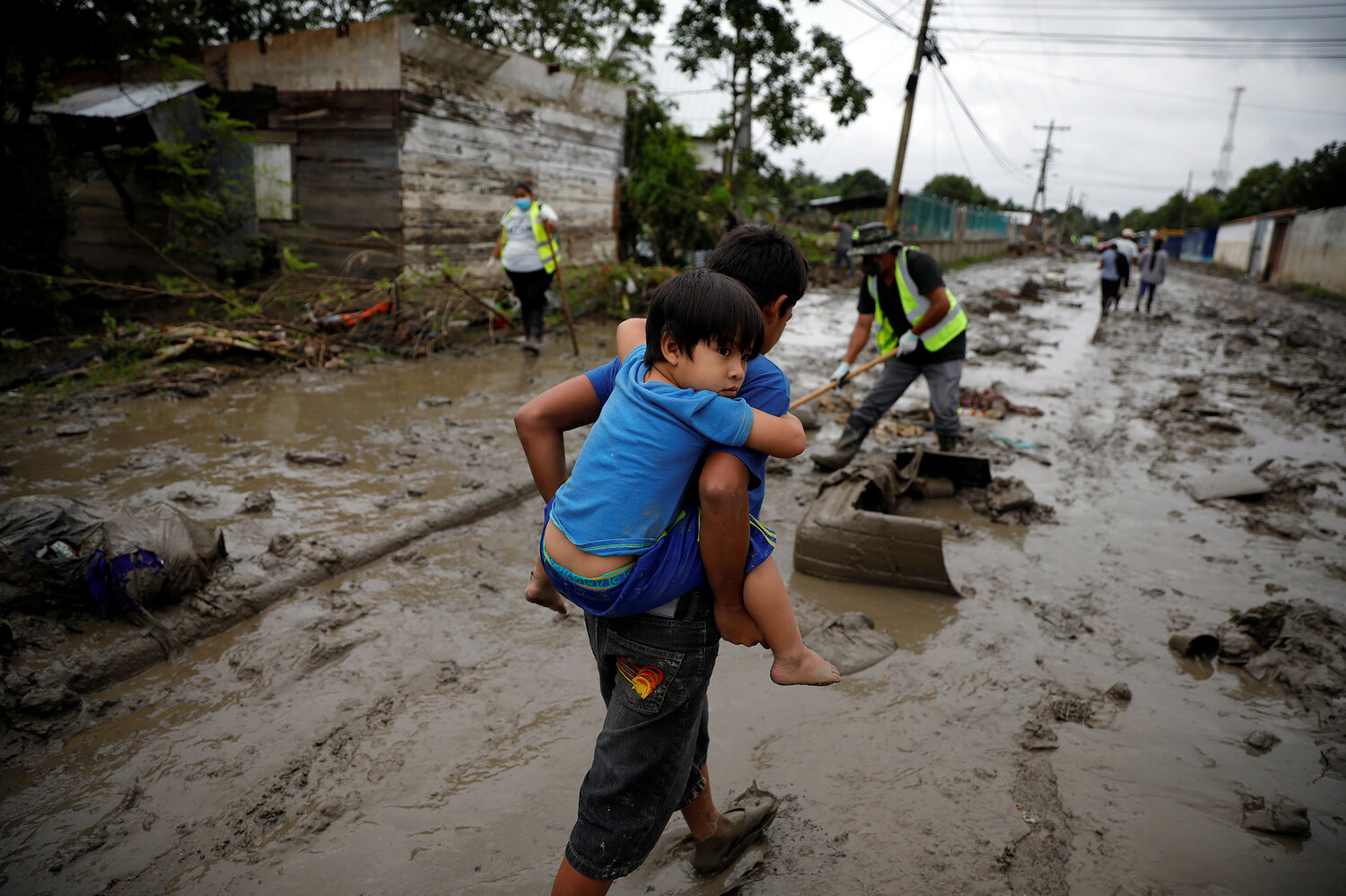
The damage from the hurricane was compounded by years of government corruption that resulted in the failure to rebuild dams and canals.
Hernández has pledged to invest four times the nation’s annual budget in infrastructure and social programs to help Hondurans recover from the storms.
The government’s track record does not inspire confidence, however, as Honduras seems destined to remain the archetypical banana republic for the foreseeable future.

-
See Lester D. Langley and Thomas D. Schoonover, The Banana Men: American Mercenaries and Entrepreneurs in Central America, 1880-1930 (Lexington: University of Kentucky Press, 1995). ↑
-
Rosenthal was indicted for “providing money laundering and other services that support the international narcotics-trafficking activities of multiple Central American drug traffickers and their criminal organizations.” Rosenthal’s campaign manager, Marcia Vierra, is a niece of Miguel Facussé (1924-2015), a palm oil rancher and business tycoon who was one of Honduras’s biggest drug traffickers. ↑
-
Jaime Rosenthal was ranked as the fifth richest man in Central America before his death in 2019 at the age of 82. ↑
-
In 2014, Oliva attended the birthday party of the daughter of a prominent drug trafficker, Orlando Pinto Espino, according to a Honduras Attorney General investigation. ↑
-
Dana Frank, The Long Honduran Night: Resistance, Terror and the United States in the Aftermath of the Coup (Chicago: Haymarket Books, 2018), 35. In March 2015 it was reported that 97 percent of murders go unsolved. ↑
-
Frank, The Long Honduran Night, 4. ↑
-
Frank, The Long Honduran Night, 11. ↑
-
Jeremy Kuzmarov, Obama’s Unending Wars: Fronting the Foreign Policy of the Permanent Warfare State (Atlanta: Clarity Press Inc., 2019), 289. ↑
-
Quoted in Kuzmarov, Obama’s Unending Wars, 289. ↑
-
The two militaries were so close that they had partied together at the defense attaché’s house the night before the coup. ↑
-
Kuzmarov, Obama’s Unending Wars, 291. ↑
-
Frank, The Long Honduran Night, 152. ↑
-
Honduras imported more than $1.3 million worth of military explosives in 2018 and some military firearms from a Wyoming company—thought to be Safariland, based in Casper. Florida companies exported more than $3 million worth of guns and ammunition since the 2009 coup. Honduras further purchased millions of dollars’ worth of bullets from Illinois producers–more than $3.7 million worth over a five-year period after the coup. See “Fact Sheet on U.S. Weapons Sales to Honduras,” https://stopusarmstomexico.org/fact-sheet-on-u-s-weapons-sales-to-honduras/ ↑
-
See Jonathan Marshall and Peter Dale Scott, Cocaine Politics: Drugs, Armies, and the CIA in Central America, rev ed. (Berkeley: University of California Press, 1998), 51-64. The Drug Enforcement Administration (DEA) office in Tegucigalpa was shut down in June 1983 to protect high-level drug traffickers allied with the CIA. Honduras in the 1980s was considered the “floating aircraft carrier for geopolitical control of the region.” ↑
-
Frank. The Long Honduran Night, 224. Cáceres was a leader of the Lenca indigenous people; her mother, Austra Bertha Flores López, had been mayor of La Esperanza during the 1970s and 1980s, when she worked with refugees from El Salvador’s civil war. ↑
-
Frank, The Long Honduran Night, 49, 194, 195. ↑
-
Frank, The Long Honduran Night, 19. ↑
-
Frank, The Long Honduran Night, 72. ↑
-
Frank, The Long Honduran Night, 195. ↑
-
Sandra Cuffe, “Drilling the Caribbean: Indigenous Communities Speak Out Against Oil and Gas Exploration in Honduras,” Upside Down World, November 24, 2014. ↑
-
Interview with Dana Frank, April 26, 2021. ↑
-
Interview Dana Frank, April 26, 2021. ↑
-
Frank, The Long Honduran Night, 54. ↑
-
Interview Dana Frank, April 26, 2021. ↑
-
Interview Dana Frank, April 26, 2021. ↑
-
Interview Dana Frank, April 26, 2021. ↑
-
Interview Dana Frank, April 26, 2021. ↑
-
Frank, The Long Honduran Night. ↑
- Frank, The Long Honduran Night, 241. ↑
CovertAction Magazine is made possible by subscriptions, orders and donations from readers like you.
Blow the Whistle on U.S. Imperialism
Click the whistle and donate
When you donate to CovertAction Magazine, you are supporting investigative journalism. Your contributions go directly to supporting the development, production, editing, and dissemination of the Magazine.
CovertAction Magazine does not receive corporate or government sponsorship. Yet, we hold a steadfast commitment to providing compensation for writers, editorial and technical support. Your support helps facilitate this compensation as well as increase the caliber of this work.
Please make a donation by clicking on the donate logo above and enter the amount and your credit or debit card information.
CovertAction Institute, Inc. (CAI) is a 501(c)(3) non-profit organization and your gift is tax-deductible for federal income purposes. CAI’s tax-exempt ID number is 87-2461683.
We sincerely thank you for your support.
Disclaimer: The contents of this article are the sole responsibility of the author(s). CovertAction Institute, Inc. (CAI), including its Board of Directors (BD), Editorial Board (EB), Advisory Board (AB), staff, volunteers and its projects (including CovertAction Magazine) are not responsible for any inaccurate or incorrect statement in this article. This article also does not necessarily represent the views the BD, the EB, the AB, staff, volunteers, or any members of its projects.
Differing viewpoints: CAM publishes articles with differing viewpoints in an effort to nurture vibrant debate and thoughtful critical analysis. Feel free to comment on the articles in the comment section and/or send your letters to the Editors, which we will publish in the Letters column.
Copyrighted Material: This web site may contain copyrighted material the use of which has not always been specifically authorized by the copyright owner. As a not-for-profit charitable organization incorporated in the State of New York, we are making such material available in an effort to advance the understanding of humanity’s problems and hopefully to help find solutions for those problems. We believe this constitutes a ‘fair use’ of any such copyrighted material as provided for in section 107 of the US Copyright Law. You can read more about ‘fair use’ and US Copyright Law at the Legal Information Institute of Cornell Law School.
Republishing: CovertAction Magazine (CAM) grants permission to cross-post CAM articles on not-for-profit community internet sites as long as the source is acknowledged together with a hyperlink to the original CovertAction Magazine article. Also, kindly let us know at info@CovertActionMagazine.com. For publication of CAM articles in print or other forms including commercial internet sites, contact: info@CovertActionMagazine.com.
By using this site, you agree to these terms above.
About the Author

Jeremy Kuzmarov holds a Ph.D. in American history from Brandeis University and has taught at numerous colleges across the United States. He is regularly sought out as an expert on U.S. history and politics for radio and TV programs and co-hosts a radio show on New York Public Radio and on Progressive Radio News Network called “Uncontrolled Opposition.”
He is Managing Editor of CovertAction Magazine and is the author of six books on U.S. foreign policy, including Obama’s Unending Wars (Clarity Press, 2019), The Russians Are Coming, Again, with John Marciano (Monthly Review Press, 2018), Warmonger. How Clinton’s Malign Foreign Policy Launched the U.S. Trajectory From Bush II to Biden (Clarity Press, 2023); and with Dan Kovalik, Syria: Anatomy of Regime Change (Baraka Books, 2025).
Besides these books, Kuzmarov has published hundreds of articles and contributed to numerous edited volumes, including one in the prestigious Oxford History of Counterinsurgency .
He can be reached at jkuzmarov2@gmail.com and found on substack here.


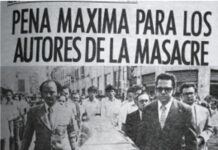


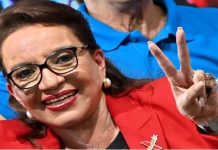

[…] Honduras también tendrá elecciones en noviembre, pero Estados Unidos no está tratando de derrocar al gobierno a pesar de que su presidente, Juan Orlando Hernández, manipuló descaradamente las elecciones, robó a los servicios sociales hondureños y ha sido acusad… . […]
https://www.youtube.com/watch?v=Q3RXl3u9oxw
[…] Kuzmarov, publicado en Cover Action Magazine, […]